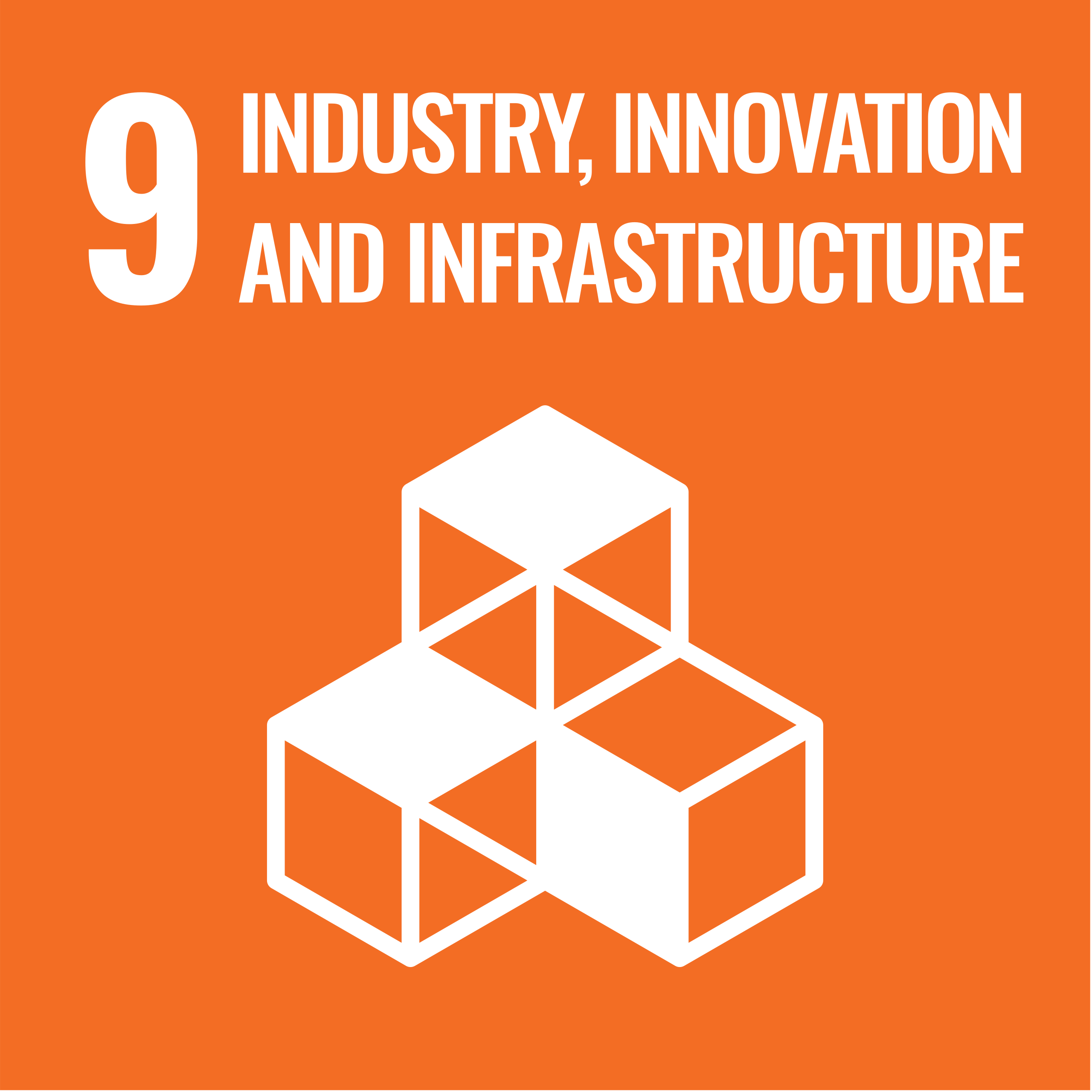Biovance Capital´s mission is to drive innovation and sustainable growth in the biotechnology sector by investing in innovative therapies with the potential to improve the lives of patients worldwide.
Benefits
The European Union has established a comprehensive regulatory framework to promote sustainability transparency in investment management. The essence of this framework is the Sustainable Finance Disclosures Regulation (SFDR) (Regulation (EU) 2019/2088) applied by the European Parliament and the Council on March 10, 2021. SFDR requires that firms managing investment funds and other collective investment schemes to provide transparency on how they integrate sustainability considerations into their investment processes.
Subsequently, the SFDR was supplemented and amended by (i) the Taxonomy Regulation (Regulation (EU) 2020/852) adopted on June 18, 2020, which establishes a classification system for environmentally sustainable economic activities, and (ii) the Regulatory Technical Standards (RTS) (Regulation (EU) 2022/1288) issued by the Commission on April 6, 2022, that provides detailed implementation guidelines for SFDR disclosures.


Benefits
Biovance Capital Partners, Sociedade de Capital de Risco, S.A. (hereinafter referred to as “Biovance”) is a venture capital company committed to fostering innovation and sustainable growth in the Biotech sector, with a strong commitment to promote environmental, social and governance (ESG) related characteristics. Biovance invests in innovative therapies with the potential to improve patient’s lives globally.
Integration of ESG requirements at Entity level (Biovance Capital Partners) and Product level (Biovance Capital Fund I) will be framed under SFDR requirements, SFDR Regulatory Technical Standards reporting requirements and European Sustainability Reporting Standards. The Fund is establishing a governance framework for ESG implementation and reporting to actively engage with Portfolio Companies and stakeholders on ESG issues. Biovance’s Sustainability Policy (hereinafter referred to as “Policy”) aims to comply with SFDR (Regulation (EU) 2019/2088), supplemented and amended as described above, guiding its investment approach with a focus on ESG criteria. The Policy applies to both Biovance as an entity and all Funds under its management, ensuring a consistent and thorough application of sustainable investment principles across our investment operations.
Biovance Capital Partners Entity-level Disclosures
At Biovance, we are committed to responsible investment practices that align with sustainability and long-term value creation. Our approach integrates ESG principles across governance, decision-making, and portfolio management. Below are key actions we undertake to ensure a structured and impactful ESG strategy.
- Incorporate responsible investment principles within the investment strategy, integrating them into operational procedures throughout Biovance’s governance framework and organizational culture.
- Create a comprehensive internal Policy clearly defining ESG incorporation into investment decision and portfolio management processes.
- Analyze and evaluate Biovance’s contribution to the Sustainable Development Goals (hereinafter “SDGs”), include and identify relevant SDGs in investment documents made available to the Investment Committee, and ensure that SDG considerations are part of investment decision meetings by the Board.
- Define measurable sustainability goals and targets, approved by the Board of Directors.
- Analyze sustainability risks and ESG materiality in order to identify relevant ESG topics (e.g., diversity and inclusion, human rights, product safety, resource use and efficiency) to the sectors (Biotech, Life Sciences) critical to Biovance’s investment strategy and inclusion in ESG due diligence and reporting processes.
- Develop an integrated framework of decision-making tools for ESG integration throughout investment lifecycles, namely an ESG Due Diligence Checklist applicable to all potential investee companies. These tools will be progressively adapted and updated according to the portfolio characteristics. The review of ESG topics during the due diligence process and following investments will be conducted and ESG factors will be incorporated in the investment recommendations.
- Establish a value creation process that will integrate relevant ESG aspects (e.g.: investment strategy, risk management, remuneration policy, among others). This process will have engagement and oversight of the Biovance management team.
- Create a reporting and disclosure system where ESG matters will be communicated on the company’s and Fund’s website and on annual reports, in compliance with SFDR reporting requirements, namely Annex I of SFDR Delegated Regulation (article 4 Entity level requirements).
- Create a team development plan aiming to provide training and workshops on sustainability for all Biovance team members.

SFDR Disclosures
Sustainability Risks Policies Statement – Article 3 SFDR
According to Article 2(22) of the SFDR, sustainability risk is an ESG event or condition that may cause a significant negative impact on the value of the investment.
Biovance actively incorporate and reflect these sustainability risks into its investment decision-making process, ensuring these considerations are particularly important to the performance of the funds under its management.
Integration of Sustainability Risks into Investment Decision-Making Processes
Before making any investment decisions on behalf of its managed funds, Biovance conducts a thorough analysis to identify material risks associated with each proposed investment, including relevant sustainability risks. These risks are incorporated into the comprehensive investment proposal submitted to the investment committee.
The investment committee assesses the identified risks alongside other key factors outlined in the proposal, determining whether to approve or reject the investment. External and internal subject matter experts are engaged to evaluate sustainability risks, using private information from company management as well as publicly available data. If significant concerns arise, the investment committee may request further due diligence to address these issues before proceeding. In cases where material risks cannot be adequately mitigated, the investment may be rejected.

The investment commitment documents all identified material sustainability risks to ensure proper monitoring and, when applicable, to enhance ESG performance and create value within portfolio companies throughout the ownership period.
Sustainability risks are considered throughout all stages of the investment process for all funds managed by Biovance:
- Sourcing: Sustainability risks in Biotech space, including the sub-sector in which companies operate, are considered during the research process for new investment opportunities.
- Investment Analysis: After the initial analysis based on external elements, additional information is collected, including data provided by the target entity, to conduct a more detailed analysis of sustainability risks.
- Due Diligence: External consultants, during the due diligence process, consider sustainability risks, and whenever identified, propose mitigation measures.
- Investment Decision: During the decision-making phase, all risks, including sustainability risks, are considered, and the operational and financial impacts are estimated. Necessary mitigation measures are defined and incorporated.
Failure of biotech companies to comply with stringent medical safety regulations, could lead to:
- Delays in approvals or product withdrawals, with potential negative impacts on financial returns and project timelines.
- Governance malpractices, which may result in regulatory fines, legal liabilities, or loss of investor trust.
- Operational delays, legal penalties, or reputational harm due to non-compliance with drug development rules, clinical trial standards, or hazardous waste disposal requirements, all of which can negatively affect investment value.
- Data privacy failures or lack of cybersecurity measures, leading to significant fines or loss of market share.
- Clinical trial failures, ethical breaches, or safety issues in product development, which may reduce investor confidence and trigger financial losses, affecting the fund’s profitability.
Failure to address critical ESG factors can negatively influence financial outcomes by not addressing patient unmet medical needs, leading to an unnecessary patient burden with increased cost to national health care systems. In addition, it could led to reputational harm or legal challenges, thus reducing company value, lowered productivity and higher employee turnover, therefore reducing business stability, and hindering technological progress and reduce long-term competitiveness.
- Portfolio Monitoring: Throughout the investment period, regular monitoring of the portfolio includes sustainability indicators and adequate mitigation measures when required.
Our strategy focuses on selecting portfolio companies committed to regulatory compliance and foreseeing the integration of environmental and social responsibilities into their business operations. Through continuous engagement with our portfolio companies, we foster sustainable growth, safeguard investment value, and drive innovation in Biotech.
Non-Consideration of Negative Impacts of Investment Decisions on Sustainability Factors – Article 4 SFDR
Pursuant to Article 4(1)(b) of Regulation (EU) 2019/2088 of the European Parliament and of the Council of 27 November 2019 on sustainability-related disclosures in the financial services sector and in accordance with Article 12 of Commission Delegated Regulation (EU) 2022/1288 of 6 April 2022, which specifies the technical standards for SFDR, Biovance Capital Partners hereby states that it does not take into consideration the adverse impacts of its investment decisions on sustainability factors at entity-level.
Biovance justifies its decision by considering both the size, sector, and scale of its activities, as well as certain limiting factors encountered, primarily upstream of the investment decision:
- Biovance’s investment scope is limited to sectors and geographic regions that, in Biovance’s opinion, entails minimal sustainability impacts.
- Biovance will invest in mostly companies with a virtual or semi-virtual model of operations, supported by outsourcing.
- At present, publicly available information on sustainability matters is not always sufficiently precise, unified and comparable to allow a rigorous assessment of the adverse impacts of its investment decisions on sustainability factors.
Without prejudice to the reasons set out above, Biovance’s decision will be periodically reviewed in light of the reasons provided and does not change Biovance’s commitment to combine its mission and strategic objectives with actively promoting sustainability factors. Should there be any changes to the circumstances presented above, and Biovance starts considering adverse sustainability impacts of its investment decisions, it shall disclose the relevant information to investors and key stakeholders.
Remuneration Policies – Article 5 SFDR
Biovance complies with Article 5 of Regulation (EU) 2019/2088 (SFDR) regarding transparency of remuneration policies in relation to the integration of sustainability risks and with the requirements set forth in the Portuguese legislation that has implemented EU Alternative Investment Funds Manager Directive (AIFMD).
Biovance Capital Fund I Product-level Disclosures
Biovance Capital Fund I invests in start-ups that are active in the Life Science and Biotech sectors. The Funds’s management team aligns their investment decisions according to a defined set of ESG criteria.
Biovance Capital Fund I and its management team evaluate each investment’s contribution to the SDGs and integrate them into investment decisions. Biovance Capital Fund I will invest in pursuing the maintenance of robust governance, compliance with regulatory obligations, and commitment to integrating environmental and social responsibilities into their activities. Biovance Capital Fund I invests in companies whose business development directly promotes the following SDGs:
 Biovance Capital Fund I adopts an ESG screening process for its investments and shall not invest, guarantee or otherwise provide financial or other support, directly or indirectly, to any companies or other entities that fall within the characteristics defined on the Pre-Contratual Disclosures.
Biovance Capital Fund I adopts an ESG screening process for its investments and shall not invest, guarantee or otherwise provide financial or other support, directly or indirectly, to any companies or other entities that fall within the characteristics defined on the Pre-Contratual Disclosures.
The financial product – Biovance Capital Fund I, promotes environmental or social characteristics but does not have as its objective a sustainable investment. In addition, no reference benchmark has been designated for the purpose of attaining the environmental or social characteristics promoted by Biovance Capital Fund I.
Measuring Sustainability at Biovance Capital Fund I
The evaluation of sustainability indicators to verify the fulfillment of the Fund’s social and environmental objectives is carried out through two key approaches:
I. Contribution to the Sustainable Development Goals (SDGs)
Biovance Capital Fund I will actively integrate sustainability into its investment strategy by setting measurable SDG-related post-investment goals and targets. These targets shall align with the investee companies’ business plans and activities. In addition, Biovance Capital Fund I will follow the recently released frameworks for the ESG Convergence for European Lifes Sciences VC Project, an initiative by European Life Sciences VC firms, and Invest Europe ESG Reporting, aiming to harmonize and simplify ESG data collection.

SDG 3
Goal
Ensure healthy lives and promote well-being for all ages
Contribution
Direct
Key Metrics
Number of patients gaining early access to clinical trials conducted by the invested companies.

SDG 8
Goal
Promote sustained, inclusive, and sustainable economic growth, full and productive employment and decent work for all
Contribution
Indirect
Key Metrics
Number of new differentiated jobs in Life Sciences in companies that prioritize ethical labour practices, workforce development and equitable opportunities, the implementation of a workplace accident prevention policy, a supplier code of conduct, and anti-corruption and anti-bribery policies.

SDG 9
Goal
Build resilient infrastructure, promote inclusive and sustainable industrialization and foster innovation
Contribution
Indirect
Key Metrics
Number of patents submitted and granted for Biotech-based therapeutics promoted by the invested companies for people in need.
The various targets under each objective are defined in the Pre-Contractual Disclosures.
II. ESG Contribution and Integration
Biovance Capital Fund I will annually collect data on selected Principal Adverse Impacts (PAIs) and other key metrics listed on the Pre-Contractual Disclosures to ensure regulatory compliance, robust governance, and the integration of environmental and social responsibilities into business operations. These PAIs derive from the EU Regulation 2022/1288, plus additional metrics from the Invest Europe ESG Reporting. These metrics reflect company size and provide key data to support regulatory compliance, strong governance, and the integration of environmental and social responsibilities into the daily operations of invested companies.
For further details on good governance practices, refer to the Pre-Contractual Disclosures, where key governance assessment questions are outlined.
Biovance Capital Fund I will embed ESG compliance in all Shareholders’ Agreements with invested companies. The management team will assess sustainability risks and ESG materiality, focusing on the identification of key topics that are critical to the sectors of Biotech and Life Sciences, such as diversity, human rights, product safety, and resource efficiency. These factors will be integrated into ESG due diligence and reporting, aligning with the fund’s Biotech and Life Sciences investment strategy.
The Pre-Contractual Disclosures outlines the metrics that the financial product will collect annually for portfolio companies.
Biovance Capital Fund I – Investment and Divestment Strategy
The fund is committed to investments that align with sustainability goals while delivering financial returns, ensuring that both investment and divestment strategies reflect these priorities. Final investment decisions are based on due diligence and predefined investment criteria defined in the Pre-Contractual Disclosures.